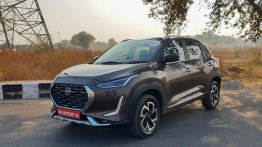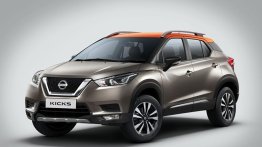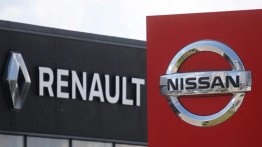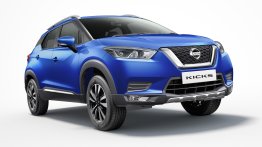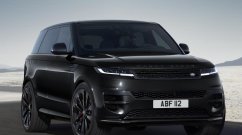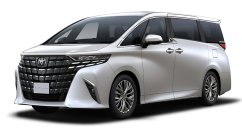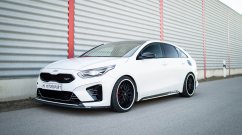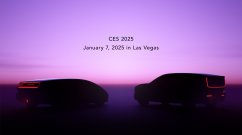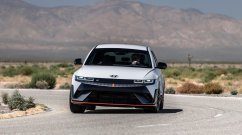The Nissan Leaf has been under consideration for the Indian market for a long time now. It has been spotted on several occasions in the past amidst road tests and was also seen at the Nissan Digital Hub in Thiruvananthapuram, powering a projector screen for an ICC Cricket World Cup match at a mall in Chennai in July 2019.
The Nissan Leaf was originally planned to be launched in India launch during the last fiscal (March 2018-April 2019), but that didn't happen. Plans for local production were ruled-out but now, if a report from ElectricVehicleWeb is to be believed, Nissan has is having second thoughts about the same. The company is interested in assembling the world's bestselling EV at its Oragadam plant.
Nissan is feeling confident about the investment and efforts required in assembling the Leaf in India, after seeing a strong response for Hyundai's Kona Electric and the high anticipation revolving around MG's ZS EV. The company wants to localise this model to an extent in order to sell it at close to INR 30 lakh (ex-showroom).
The Nissan Leaf is almost a decade old now since it first came into existence in 2010. In 2017, it had got a complete makeover. The EV is already on sale in more than 50 countries around the globe.
As far as the mechanicals are concerned, the Nissan Leaf sources its power from the new EM57 electric motor which churns out 110 kW (150 PS) at 3,283-9,795 rpm and 320 Nm of peak torque at 0-3,283 rpm. The motor's energy source is a 40 kWh Li-ion battery that can be fully charged-up using a 3 kW charger in 16 hours or in 8 hours using a 6 kW charger. Using a quick charger, it can be charged to 80% in just 40 minutes. Its range in the JC08 test cycle has been scaled at 400 km.
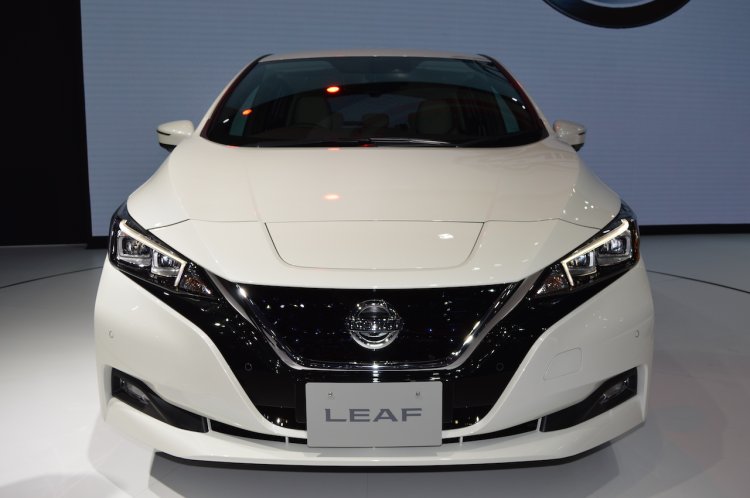
Also Read: Datsun to pull out of South East Asia & Russia, but not India
There is also a Nissan Leaf e+, which comes kitted with a 62 kWh battery pack and a more potent version of the EM57 motor that churns out 218 PS at 4,600-5,800 rpm and 340 Nm of torque at 500-4,000 rpm. It has an exceptional range of 570 km (JC08 test cycle). It is highly unlikely for the Indian market launch due to its pricier proposition, though.
[Source: ElectricVehicleWeb]















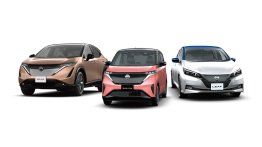
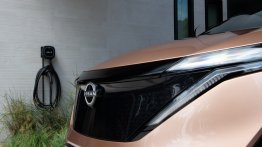
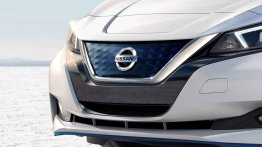
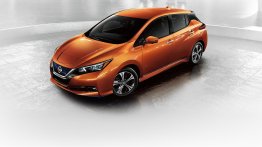
![Nissan Leaf powers display screening ICC World Cup 2019 match in India [Video]](https://img.indianautosblog.com/crop/262x147/2019/07/02/nissan-leaf-express-avenue-9205.jpg)

